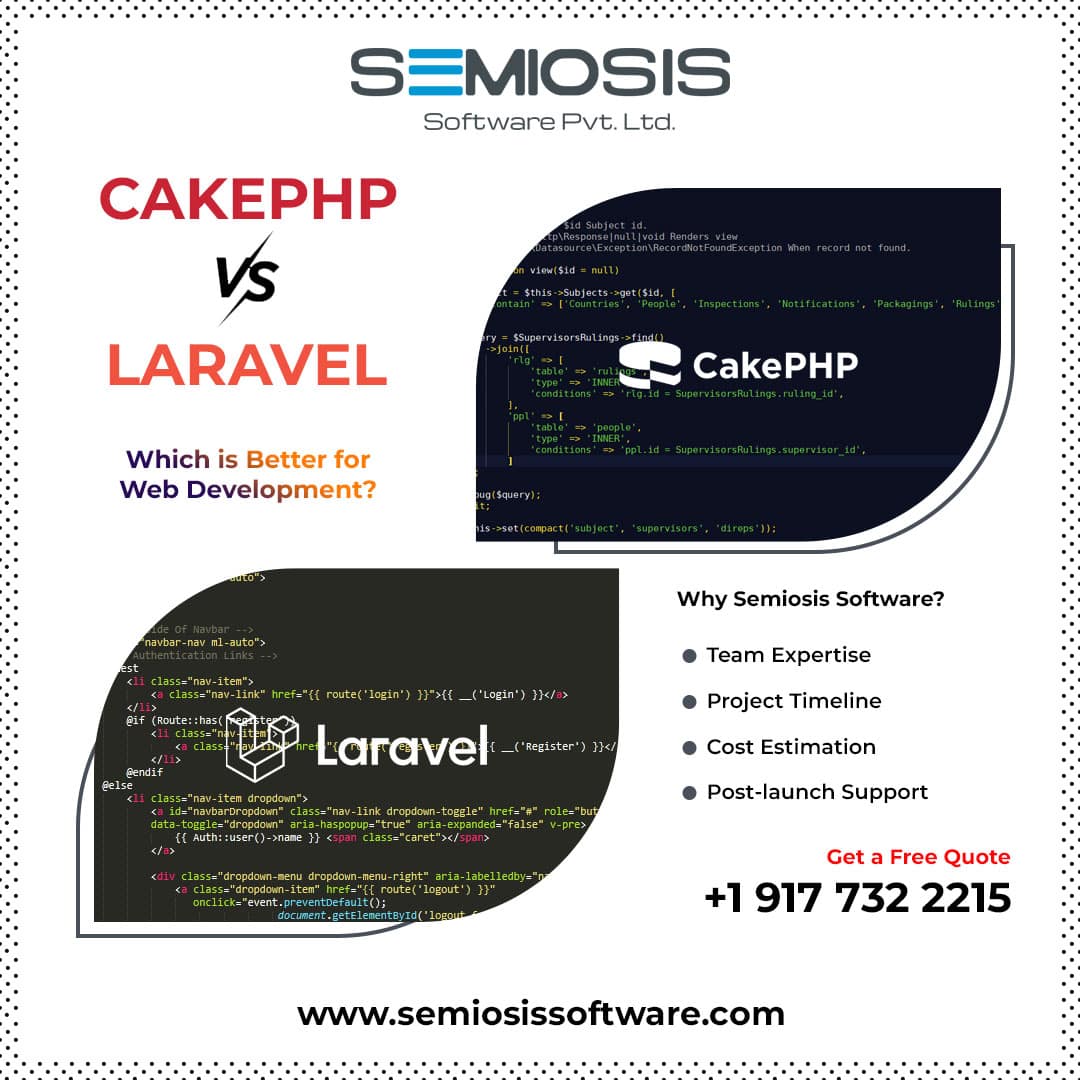CakePHP vs Laravel: Choosing the Right Framework for Web Development
In the vast landscape of web development, selecting the right framework can significantly impact the efficiency, scalability, and success of your project. Among the myriad of options available, CakePHP vs Laravel stand out as popular choices for developers seeking powerful, feature-rich frameworks. Both offer robust tools and functionalities, but each comes with its own set of strengths and weaknesses. In this blog post, we’ll delve into the comparison between CakePHP vs Laravel to help you make an informed decision on which framework is better suited for your web development needs.
Understanding CakePHP – Cakephp VS Laravel
CakePHP, an open-source PHP framework, has been around since 2005, making it one of the pioneers in the PHP framework landscape. Known for its simplicity, CakePHP follows the convention over configuration (CoC) principle, reducing the need for boilerplate code and enabling rapid development. It provides built-in features for database access, authentication, and security, making it an excellent choice for developing CRUD (Create, Read, Update, Delete) applications.
Key Features of CakePHP – Cakephp VS Laravel
- MVC Architecture: CakePHP follows the Model-View-Controller architectural pattern, promoting separation of concerns and code organization.
- Scaffolding: Quickly generate basic CRUD functionality for your application with minimal coding.
- Built-in ORM: Object-Relational Mapping simplifies database operations by allowing developers to interact with databases using PHP objects.
- Security Features: CakePHP comes with built-in security features like input validation, CSRF protection, and SQL injection prevention.
- Community and Documentation: With a mature community and extensive documentation, CakePHP offers ample resources for developers.
Exploring Laravel – Cakephp VS Laravel
Laravel, a relatively newer player in the PHP framework arena, was released in 2011 and has rapidly gained popularity due to its elegant syntax, developer-friendly features, and robust ecosystem. Built on top of several Symfony components, Laravel embraces modern PHP principles and provides a rich set of tools for building web applications, APIs, and even microservices.
Key Features of Laravel: – Cakephp VS Laravel
- Expressive Syntax: Laravel boasts an expressive and elegant syntax, making common tasks such as authentication, routing, and caching simple and enjoyable.
- Artisan CLI: Laravel’s command-line interface, Artisan, automates repetitive tasks and streamlines development workflows.
- Blade Templating Engine: Blade, Laravel’s powerful templating engine, offers convenient shortcuts and control structures for writing clean and concise views.
- Eloquent ORM: Laravel’s ORM simplifies database interactions with expressive syntax and relationships between database tables.
- Laravel Ecosystem: Laravel benefits from a vibrant ecosystem with a wide range of packages, extensions, and community contributions.
CakePHP vs Laravel: A Comparative Analysis
Now that we’ve explored the key features of CakePHP vs Laravel, let’s compare them across several dimensions to help you determine which framework aligns best with your project requirements.
- Learning Curve:
- CakePHP: With its convention-based approach and straightforward documentation, CakePHP is relatively easy to learn for developers familiar with PHP frameworks.
- Laravel: While Laravel’s elegant syntax and extensive documentation make it beginner-friendly, its more advanced features may require additional learning time.
- Performance:
- CakePHP: Known for its performance optimization features, CakePHP offers fast execution speed and efficient resource utilization.
- Laravel: Although Laravel provides excellent performance out of the box, developers may need to fine-tune configurations for optimal performance in large-scale applications.
- Community and Ecosystem:
- CakePHP: While CakePHP boasts a mature community and a range of plugins and extensions, its ecosystem may not be as extensive as Laravel’s.
- Laravel: With a thriving community and a vast ecosystem of packages and extensions, Laravel offers unparalleled support and flexibility for developers.
-
Scalability:
- CakePHP: CakePHP’s modular architecture and built-in features for caching and optimization make it scalable for a wide range of applications.
- Laravel: Leveraging features like queues, caching, and database sharding, Laravel excels in building scalable applications capable of handling high traffic loads.
- Flexibility and Customization:
- CakePHP: While CakePHP provides a solid foundation for building web applications, it may have fewer customization options compared to Laravel.
- Laravel: Laravel’s flexible architecture and extensive feature set allow developers to customize and extend functionalities according to project requirements.
Best Cakephp Development Company – Cakephp VS Laravel
Semiosis Software is renowned as a premier CakePHP Development Company, specializing in crafting robust, scalable, and customized web solutions. With a team of seasoned developers adept in CakePHP’s intricacies, Semiosis Software delivers high-quality applications tailored to clients’ specific needs. Leveraging CakePHP’s efficiency and flexibility, they ensure swift project execution and seamless performance. Semiosis Software’s commitment to excellence, combined with their expertise in CakePHP, makes them the go-to choice for businesses seeking top-tier web development solutions. Trust Semiosis Software to transform your vision into a feature-rich, user-friendly web application that drives success in the digital landscape.
Best Laravel Development Company – Cakephp VS Laravel
Semiosis Software stands out as a top-tier Laravel Development Company, renowned for delivering cutting-edge web solutions tailored to clients’ unique requirements. With a team of skilled Laravel developers proficient in harnessing the framework’s power, Semiosis Software ensures the creation of high-performing, scalable, and feature-rich web applications. Their commitment to innovation, combined with extensive expertise in Laravel, enables them to execute projects efficiently and effectively. Whether it’s building dynamic websites, robust APIs, or complex enterprise applications, Semiosis Software leverages Laravel’s capabilities to deliver superior results. Partner with Semiosis Software for transformative web solutions that propel your business forward in the digital realm.
Conclusion – Cakephp VS Laravel
In conclusion, both CakePHP vs Laravel are powerful PHP frameworks that offer unique strengths and capabilities for web development. While CakePHP excels in simplicity, performance, and ease of learning, Laravel stands out for its elegant syntax, rich ecosystem, and advanced features.
Cakephp VS Laravel : When choosing between CakePHP vs Laravel, consider factors such as your project requirements, team expertise, scalability needs, and ecosystem support. Ultimately, the “better” framework depends on the specific needs and objectives of your web development project. Whether you opt for the simplicity of CakePHP or the elegance of Laravel, both frameworks empower developers to create high-quality web applications that meet the demands of modern digital experiences.






